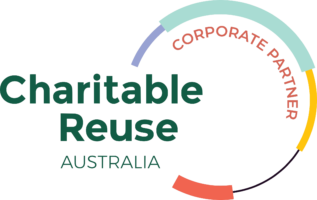The status of C&I sorting in Australia
By Esther Hughes & Mike Ritchie, MRA Consulting Group
With landfill levies in NSW at $140.20/t you would think that sorting of commercial waste would be more common than it is. Less than 5% of the Commercial and Industrial (C&I) waste in NSW is put through a processing plant to recover the valuable materials. In other words, less than 120,000t of the 5.5 MT that is generated is put through a processing plant. There are no dedicated C&I sorting facilities in other States (and landfill levies are lower).

The waste industry is under-invested in C&I sorting, with essentially only four companies having a go at commercial mixed waste recovery (SUEZ, Doyle Bros, Waste Free and Bingo). The first three use small dedicated C&I facilities and have very limited C&I processing capacity. While, Bingo processes dry C&I through its large scale C&D processing facilities.
The question is why so few and why such small tonnes? The answer is demand, or rather, lack of demand.
By far the biggest users of sorting technologies are big waste generators who need to report sustainability and recycling achievements. Think Ikea, Universities and the like.
Another group are the Office Tower owners who report to NABERS and Green Star for rating purposes. They seek out sorting technologies to improve their rating under the NABERS Waste tool and similar indicators of sustainability performance.
The final group are commercial operators who want to do the right thing and seek out one of the above four processors. They want to divert their waste from landfill and back into the productive economy.
The problem for the economy and recycling is that those demanding sorting of their waste represent a small percentage of businesses. The rest either don’t care or are not prepared to pay a price premium for recycling.
Of course, the increases in the NSW landfill levy make the differential between landfilling and recycling smaller all the time. But for most businesses it still costs more to recycle than to landfill mixed commercial waste.
Recycling can be cheaper if the mixed waste stream includes large amounts of cardboard, metals or plastics. However, if it is wet waste (food or liquids) then it is most often landfill that is the cheaper option. Food waste is the bane of dry recycling systems.
So, we are in a quandary. If landfill levies do not increase further then it is unlikely that mixed C&I waste recycling will be viable for many streams and certainly not those that include food. It is also generally more expensive to collect food from commercial premises (in a dedicated system) than it is to landfill it as a mixed stream. So, most companies will not go for dedicated food waste collection voluntarily.

It is true that if landfill levies rise across Australia then more companies (waste generators) will separate waste into separate bins for delivery direct to paper mills etc. But the gains will be relatively small compared to the 5.5 MT that is being landfilled as mixed waste. We must get processing facilities built and built soon.
Governments have two options if they want to see commercial waste sorting happen.
One, increase the landfill levies further. Two, require dedicated food waste collection services so that we can better sort the mixed dry waste streams.
It is the right and proper role of government to set recycling targets. Having done so they need to ensure the market signals are in place for the recycling to happen. At present the market is weak at best in NSW and almost non-existent in the rest of Australia.
As always, we welcome your feedback on this, or any other topic on ‘The Tipping Point’.



